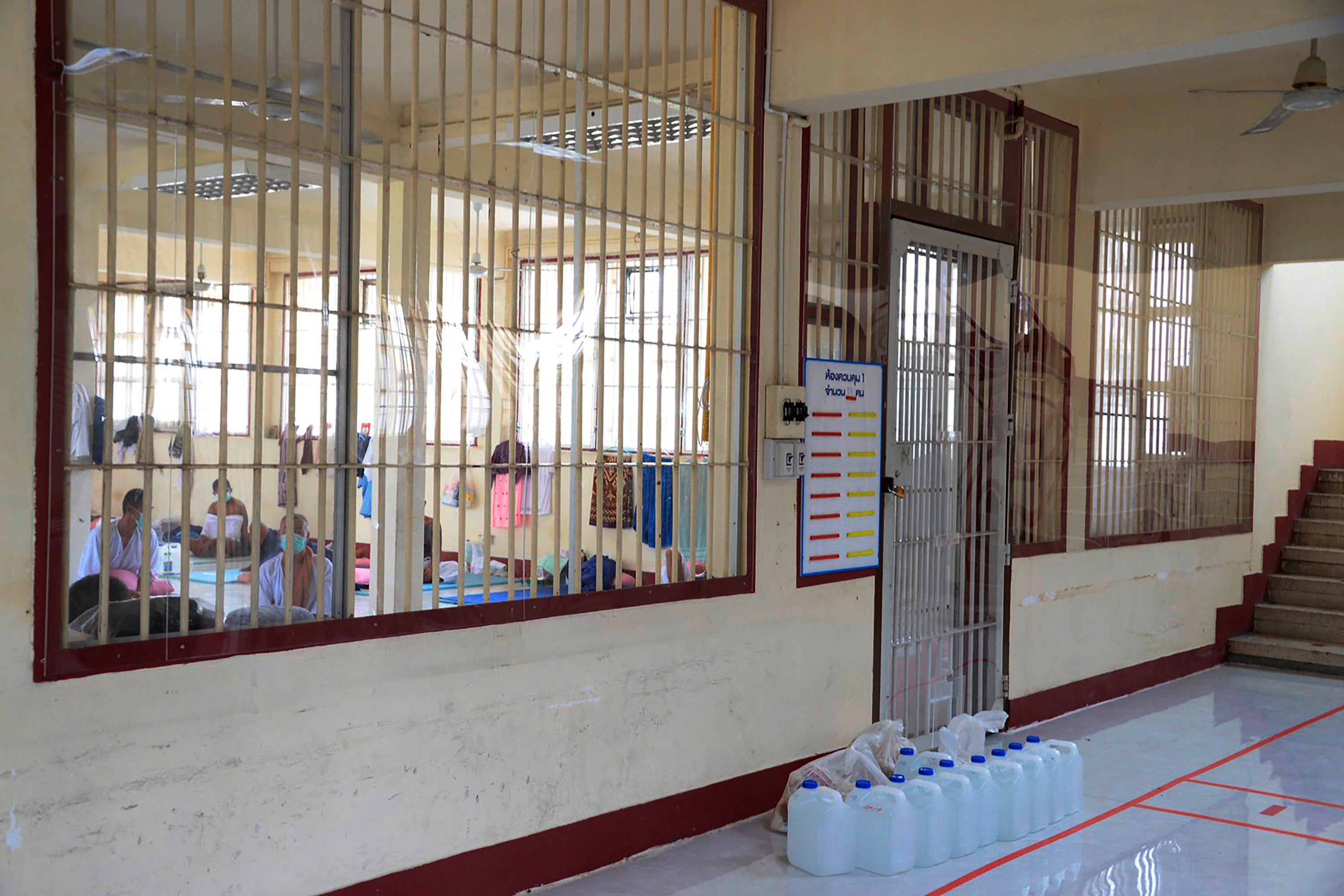COVID-19 infections surge among prisoners in Bangkok
Nearly 3,000 inmates at two prisons in Thailand’s capital have tested positive for COVID-19 as the country battles a new wave of the coronavirus

Your support helps us to tell the story
From reproductive rights to climate change to Big Tech, The Independent is on the ground when the story is developing. Whether it's investigating the financials of Elon Musk's pro-Trump PAC or producing our latest documentary, 'The A Word', which shines a light on the American women fighting for reproductive rights, we know how important it is to parse out the facts from the messaging.
At such a critical moment in US history, we need reporters on the ground. Your donation allows us to keep sending journalists to speak to both sides of the story.
The Independent is trusted by Americans across the entire political spectrum. And unlike many other quality news outlets, we choose not to lock Americans out of our reporting and analysis with paywalls. We believe quality journalism should be available to everyone, paid for by those who can afford it.
Your support makes all the difference.Nearly 3,000 inmates at two prisons in Thailand’s capital have tested positive for COVID-19, the Corrections Department said Wednesday, as the country battles a new wave of the coronavirus.
The department said 1,785 of the 3,274 inmates tested positive at Bangkok Special Prison, which holds detainees ahead of trial. At the Central Women’s Correctional Institution, 1,040 of the 4,475 inmates were infected, it said.
The Corrections Department announced the infections after a prominent political activist released on bail last week announced Wednesday that she had tested positive for the virus. Panusaya “Rung” Sitthijirawattanakul and fellow members of a student-led pro-democracy movement are awaiting trial on charges of defaming the monarchy, or lese majeste, which is punishable by up to 15 years' imprisonment.
The department confirmed last week that two other activists also tested positive for COVID-19. The legal aid group Thai Lawyers for Human Rights said nine activists who were detained have tested positive, including Panusaya and another who has been released.
Health authorities on Wednesday announced 1,983 new coronavirus cases, bringing Thailand s confirmed total to 88,907 since the pandemic began. There were 34 new deaths, for a total of 486.
The new coronavirus wave began at the beginning of April, originating in upmarket entertainment venues in Bangkok and spawning clusters in several crowded slum communities, followed by other venues such as department stores. Many recent cases involve the British variant of the virus, which is more infectious than the original form found last year.
The new wave accounts for about two-thirds of all confirmed Thai cases and more then three-fourths of the deaths.
Anti-coronavirus restrictions have been tightened, although there are no strict curfews or travel bans. In the worst-hit areas, such as Bangkok, restaurants are barred from dine-in service and can only sell take-out meals.
The surge in cases and deaths has strained the capacity of hospitals to provide beds and ICU facilities, leading to the establishment of temporary field hospitals.
There is concern over the slow pace of vaccinations after Prime Minister Prayuth Chan-ocha’s government failed to secure adequate vaccines. Less than 3% of the country’s population has been vaccinated.
Even with limited supplies, demand for vaccinations through an online scheduling app has fallen short of targets in some areas, said health officials, who announced plans to make it easier to get inoculated.
While it will still be possible to book online, people will also be able register via groups to which they belong, such as their workplaces, as well as go to several mobile walk-in centers without reservations, Public Health Minister Anutin Charnvirakul announced. The expanded system will come into effect in June, when local production of the AstraZeneca vaccine is to begin at a planned rate of 10 million doses monthly.